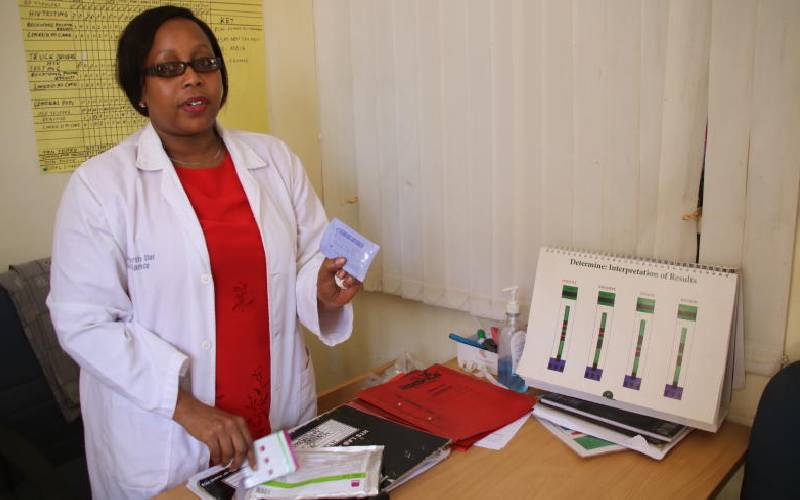×
The Standard e-Paper
Join Thousands Daily

HIV testing Service provider Irene Marete displays the test kit at the North Star Alliance- Mlolongo Wellness Centre. [David Gichuru, Standard]
The country is faced with an acute shortage of HIV testing kits, risking transmission of mother to child infection.